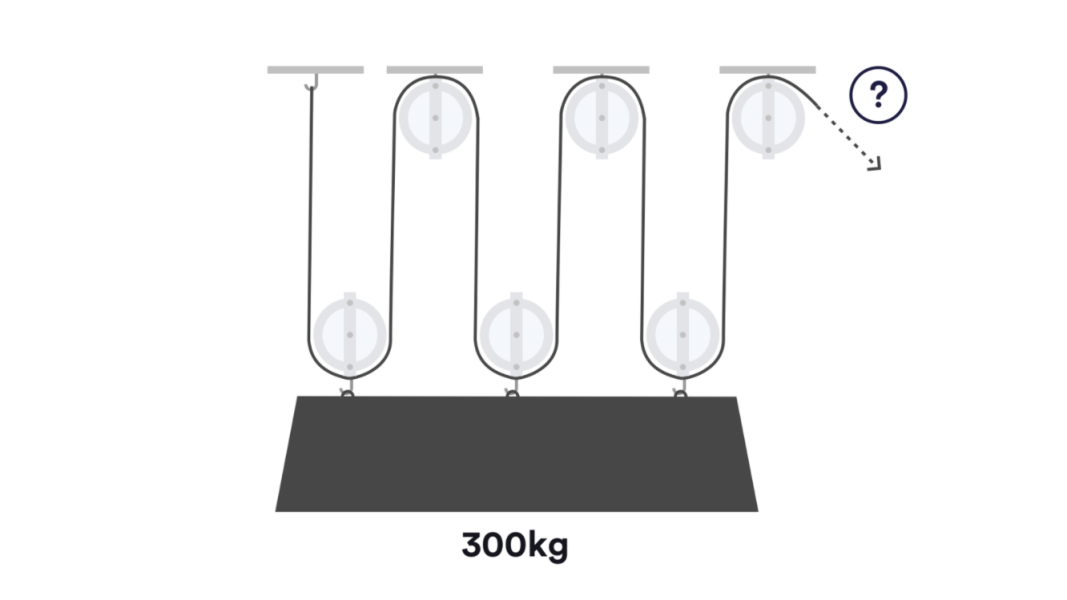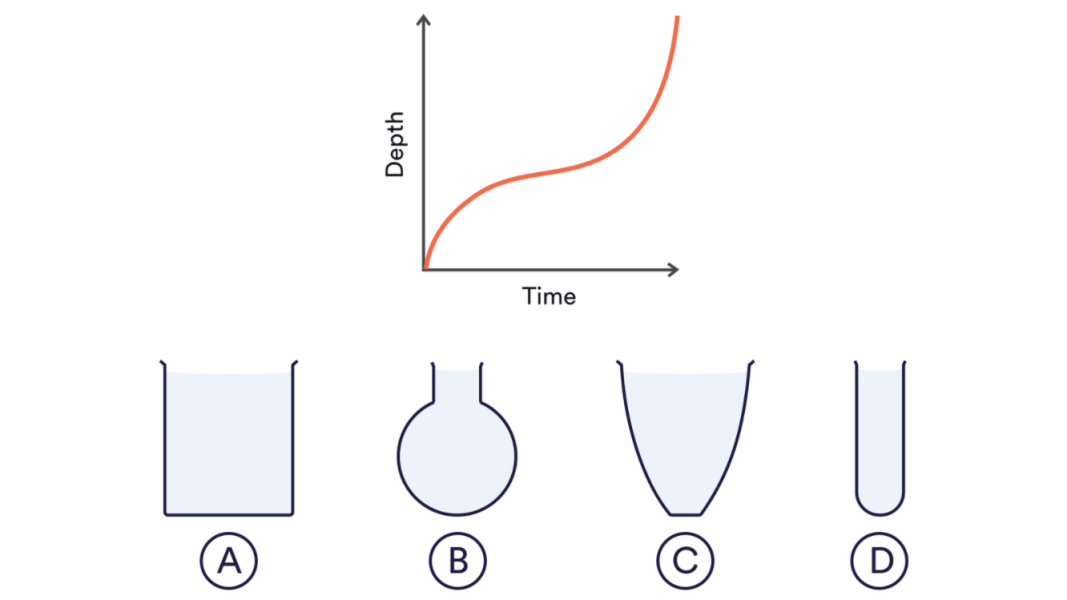Bennett Mechanical Comprehension Test Pdf Download

Bennett Mechanical Comprehension Tests
- 10 tests
- 80 questions

The Bennett Mechanical Comprehension Test demonstrates your ability to understand mechanical concepts and apply them to solve problems. It has been used for more than 60 years in various forms as a screening and capability test for military, engineering and other technical roles.
What is a Bennett Mechanical test?
The Bennett Mechanical Comprehension Test (BMCT) was first published in 1940 by the Psychological Corporation (now known as Pearson Education).
There are two forms of the test: the BMCT-I was a paper-and-pen version that has been largely superseded by the BMCT-II, which is taken online.
The BMCT is a multiple-choice test that uses images and diagrams based around four main areas:
- Mechanical comprehension
- Spatial visualisation
- Knowledge of basic mechanical and physical laws
- Deduction of how things work
When used as a recruitment tool, the BMCT is a proven predictor of performance for industries that rely on technical aptitude. It is a straightforward yet effective way to screen candidates for roles that need some innate mechanical ability.
Some companies use the BMCT as a training tool, highlighting any areas that might need more work to improve overall performance. It's also a good risk management tool; those who score lowest on the test may not be a good fit for a role that needs strict risk management.
Which professions use the BMCT and why?
The Bennett Mechanical Comprehension Test is a good indicator of whether an applicant is suitable for a role where mechanical and technical ability is needed. As such, it is used as part of the application and retention processes at a number of multinational companies and in several different industries.
This list of professions that use the BMCT is not exhaustive, although they can be categorised as those with more physical work:
- Emergency services, especially the fire service
- Skilled trades like gas, electric and water service, repair and installation
- Machine operation, either in a factory or heavy plant machinery
- Airlines – mechanics and engineers
- Manufacturing operators
- Automobile mechanics
The Bennett Mechanical Comprehension Test is sometimes used alongside other types of aptitude tests when assessing for managerial or multi-functional roles.
The format of the Bennett Mechanical test
The Bennett Mechanical Comprehension Test typically consists of 55 questions that need to be completed in 25 minutes. The questions themselves are straightforward, so the short time frame should be achievable.
At the beginning of the test you will have two practice questions that are untimed, so you can get comfortable with the layout, language, and the way you need to answer.
Each question is presented as a graphic with a question. The answers are multiple choice.
The topics of the questions are as follows:
- Pulleys and levers
- Hydraulics
- Resolution of forces, centrifugal force and inertia
- Structures, planes and slopes
- Gears and belt drives
- Miscellaneous
- Gravity and velocity
- Acoustics and optics
- Centre of gravity
- Electricity
- Heat
- Shape and volume
The topics at the beginning of the list have more questions within them, and approximately 68% of the questions in a typical BMCT-II test are about force and movement, velocity, and fluid mechanics.
The pass rate of the BMCT will depend on the organisation. Answers are collated and a percentile rating allocated against your answers, to show where you score falls amongst a normative group.
This percentile is how the test-giver or potential employer can discover whether you would be a good fit for their organisation. The pass rate will be higher if you are applying for a role as an engineer at an airline than as an operative in a manufacturing facility.
How BMCTs are scored and what it means
When you have completed a BMCT, the organisation you are testing for will receive a score report from Pearson; this includes your raw score and a percentile ranking.
As mentioned above, the percentile rating is used to compare your results against a normative group. There are some generalisations that can be made about the scores in each percentile range:
0–19 : For almost all applications, this would not be a pass. Although you might demonstrate some understanding of mechanical reasoning, you would need very close supervision and extra training.
20–39 : This percentile range might make you a candidate if you also scored highly on other parts of the application, as you have demonstrated a basic ability to use mechanical reasoning to solve problems.
40–59 : This is likely to be considered a hiring range for many roles. You would learn at a steady pace and demonstrate good aptitude for applying mechanical principles.
60–79 : For more technical roles this would be considered a great score, and hiring managers would be confident of your affinity with mechanical principles.
80+ : At this range, you demonstrate a strong grasp of mechanical principles and excellent spatial awareness. This percentile range is a very good score for even the most technical roles.
How best to prepare for a Bennett Mechanical test
The BMCT is not designed to test your learning. It measures your grasp of mechanical reasoning and the way you can apply knowledge to answer a question. This means that you do not need to 'study' to pass this test, but you might want to brush up on some basic physics and mechanics.
The BMCT covers a lot of topics, with at least 3 questions on each subject (sometimes as many as 12). The 'pulleys and levers' topic has the most questions on a typical test, so having a good understanding of the mechanics of a lever will help you considerably.
If there are some areas of mechanical reasoning that you feel you need to practice more, then taking some practice tests will not only help you assess your performance, but also highlight the areas you might need to study more.
In the case of the BMCT, practice will help you get familiar with the layout as well as the timings. Remember, for the BMCT-II you need to answer 55 questions in just 25 minutes (around 30 seconds per question).
See here for more information about preparing for a mechanical reasoning test.
Prepare yourself for leading employers
Free practice mechanical questions
As with all other aptitude tests, one of the most important things you can do to improve your score is to practice.
With the practice questions below, you will be able to see the layout and check that you are comfortable with the way you need to answer. Solutions follow beneath the questions.
Mechanical practice question 1

What force is required to lift this weight?
- A) 30kg
- B) 50kg
- C) 100kg
- D) 150kg
Mechanical practice question 2

If two cogs are turning together, one with 30 teeth and the other with 20, how many revolutions would the smaller cog have turned if the larger cog had rotated 15 times?
- A) 21
- B) 21.5
- C) 22
- D) 22.5
Mechanical practice question 3

Which container is being represented in this graph as it is filled with water?
Solutions
Question 1: There are 6 sections of rope supporting the weight, meaning we must divide the total weight by 6. 300 / 6 = 50kg (B).
Question 2: The smaller cog rotates 1.5 times quicker than the larger as there are 1.5 times more teeth on the latter cog. This means that is the cog with 30 teeth has rotated 15 times, the smaller cog will have turned 1.5 times more. So 15 x 1.5 = 22.5 (D).
Question 3: The steepest lines on the graph represent the thinnest part of the container, as this is the part of the container that would become fuller quicker. This graph represents a container that starts thin, gradually becomes wider and then becomes thin again at the top. The answer is B.

After using the platform for two weeks, I've never felt more prepared for an Aptitude test.
Ethan used Practice Aptitude Tests to improve his situational judgement scores. Start your success story
Is the BMCT hard?
The structure and language of the Bennett Mechanical Comprehension Test is not designed to be difficult. In fact, it is aimed at a sixth-grade level. The difficulty of the BMCT comes from the application of this relatively basic knowledge to answer questions – and doing it quickly.
What are basic mechanical skills?
Some of the basic principles that you might need to understand include: pulleys; force and movement (Newton's three laws of motion, friction and gravity); fluids (hydraulics, the ideal gas law, Bernoulli's principle); thermodynamics (heating, cooling, evaporation and condensation); electricity (Ohm's Law, circuits); wheels (rotational and linear velocity, the relationship between wheel size and speed); gears (direction of rotation, gear ratio); acoustics (refraction, reflection, the Doppler effect, attenuation); optics (principles of light, reflection and sight).
Where can I practice mechanical reasoning tests?
To get started, you can practice some free mechanical comprehension tests on our mechanical reasoning tests page.
What are mechanical reasoning tests used for?
Mechanical reasoning tests are generally used to assess how well the test taker can apply mechanical principles to solve problems in a practical environment. As part of the recruitment process, these tests can show whether an applicant has a natural affinity for mechanics and would be successful in a role where this is needed.
Bennett Mechanical Comprehension Tests Tips
1Read the question
The questions are usually not complicated, so take some time to read them thoroughly and it will help you to understand how best to answer.
2Use the graphics
Each question is accompanied with a graphic or image that demonstrates the mechanical law that is being assessed. The answer is in the image – you just need to apply the correct mechanical reasoning.
3Practice
It might seem obvious, but the best way to prepare and succeed in a mechanical reasoning test is to practice. Pearson has stated that those who practice regularly can increase their score by 4 points on average – and while that might not seem like much, it could be the difference between a pass and a fail.
4Be quick
With 55 questions to answer in just 25 minutes, there is not a lot of time to spend on each one. This means that you need to be able to answer quickly as well as accurately to be successful.
5Use your knowledge
Unlike some other types of aptitude tests that require you to use only the information in front of you, the Bennett Mechanical Comprehension Test makes use of your prior knowledge and also your competence at physics and mechanics.
Mechanical Reasoning Video Tutorials

Mechanical Reasoning Tests
4 mins

Similar Shapes
2 mins

Mirror Images
1 min
Try Bennett Mechanical Comprehension Tests for Free
-
Free
Mechanical Reasoning 01
20 Questions|20 Minutes
-
Mechanical Reasoning 02
20 Questions|20 Minutes
-
Mechanical Reasoning 03
20 Questions|20 Minutes
Improve your scores with our intelligent learning system
-
- Get instant access 24/7 to real life tests
- Track historical test performance with our custom dashboards
- Learn from mistakes with our fully worked solutions
- Prepare for top employers with our bespoke employer packages
- Compare your scores against industry standards
Access all 10 Mechanical Reasoning Tests
Improve your hiring chances by 76%
Prepare for your Mechanical Reasoning Test
One-time payment. No recurring fees
Mechanical Reasoning Package
1 month access
- 10 Mechanical Reasoning Tests
- Dashboard performance tracking
- Full solutions and explanations
- Tips, tricks, guides and resources
Buy now 30-Day Money-back guarantee
All Test Packages
12 months access
- 10 Mechanical Reasoning Tests
- 45 Numerical reasoning tests
- 45 Verbal reasoning tests
- 10 Diagrammatic reasoning tests
- 35 Situational judgement tests
- 24 Publisher packages e.g. Watson Glaser
- 222 Employer packages e.g. HSBC
- + 28 Extra packages including: Abstract, Inductive, Mechanical, Personality and more
- Dashboard performance tracking
- Full solutions and explanations
- Tips, tricks, guides and resources
Buy now 30-Day Money-back guarantee
SSL secure payment
Reviews of our Mechanical Reasoning tests
What our customers say about our Mechanical Reasoning tests
-
United States of America
November 20, 2021
Online test
I liked how they gave you real-world questions and ones with pictures. I'm sure it could help others also.
-
United States of America
November 13, 2021
It was a good test
I liked this test, I took the practice test first and honestly it helped. I didn't know about all of these things, so the test helped me learn more. I hope to see the other tests as well.
-
United States of America
November 11, 2021
It's important to know the analytics of procedures
What I like most about this test it the manner in how easy it is. What I dislike is the fact that it's too easy.
-
United States of America
November 11, 2021
Different types of metals
What I liked about the test is how it showed me graphs and representations of graphs and to solve them. What I disliked about the test is the time.
-
United States of America
November 03, 2021
Being able to study and practice to know what to expect
Seen a few things from earlier that had me prepared, but the ones I did I'd never seen before, so had to make a guess as I did not know.
-
Easy-Peasy and Interesting
Really enjoyed the test, and yeah, I bragged a little bit too much in the headline when I called the test easy-peasy.
-
United States of America
October 05, 2021
Exciting, and fun!!
Practice test too short. Would have enjoyed more questions to share positive experience with others.
-
Pakistan
October 03, 2021
Well structured
I like this type of test. It is about the basic mechanical sense of a human being. My interests are according to mechanical aptitude, so I like these types of tests.
-
United States of America
September 22, 2021
Mixture of things
The test was somewhat challenging, I felt I did fine with it. I think it could help in hiring new candidates for our machine areas. It could improve what our Human Resource department gives us in future employees.
-
Uganda
September 18, 2021
Application of basic principles
I liked the test because it would make me think all around to find out which physics principle each question is testing for
Source: https://www.practiceaptitudetests.com/bennett-mechanical-comprehension-tests/
Posted by: rogerhedemanne06813.blogspot.com

Posting Komentar untuk "Bennett Mechanical Comprehension Test Pdf Download"